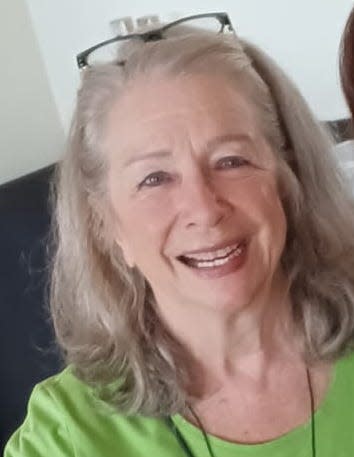Advance Placement African American Studies course should be approved
This is in response to the Democrat article published on Thurs. July 27, “AP African American class still banned in Fla. despite demand.” In a letter earlier in the year, Florida’s Department of Education officials claimed that the high school College Board course is “inexplicably contrary to Florida law and significantly lacks educational value.”
More recently (July 19) the Florida Department of Education unanimously approved a revised social studies curriculum for African American history for kindergarten through 12th grades. I do not approve of the curriculum’s contents, but that is another “Your Turn” column.
I have read the lengthy AP African-American Studies course and was greatly impressed by it. It is remarkably well written, professional, and unbiased. The team of top-notch academic contributors, led by Yale Professor Brandi Waters, have summed up a wealth of pertinent information and have added concomitant primary source material and images. They should be congratulated, not lambasted. It is an impressive accomplishment.
Any study of African Americans must begin with Africa. Even though African people and their cultures have had an enormous influence in shaping and invigorating many of the cultures of the world outside of the Africa, few textbooks on western civilization include information on Africa before Europeans came into contact with the continent. As Guyanese scholar Ivan Van Sertima stated, we have all been brainwashed to believe that nothing of importance existed in Africa before the advent of the trans-Atlantic slave trade.
Some textbooks may include a section on ancient Egypt and explain how Africans influenced the ancient Greeks, but the latter are thought of as the root or origin of modernity in the West. Most textbooks ignore early stages of African history such as Stone Age cultures (Paleolithic and Neolithic) and the huge, highly developed medieval kingdoms and empires. Unknown to most, the latter flourished while Europe was experiencing what Renaissance historians would later call the “Dark Ages.”
The information in this AP course enlightens the reader about the early periods in African history, before the advent of the Trans-Atlantic slave trade. It helps replace misconceptions and stereotypes, as well as idealized romantic views, by allowing students to see Africa in all its diversity and complexity.
After the trans-Atlantic slave trade ended, the history that had been denied to Africans by their captors would have to be recovered. As Jamaican-born Marcus Garvey (1887-1940) said about the lost history and heritage of Blacks, “a people without knowledge of their past is like a tree without roots.” The recovery process continued in the United States with such thinkers as W.E. Burghardt DuBois, who wrote The World and Africa in 1946 in order to begin to restore what slavery and colonialism had taken away. The recovery is continuing today.
When I first started teaching required Humanities survey courses at FAMU in 1981, there was no mention of Africa or and not much about African-Americans in the two-volume textbook used in the class. The publishers eventually added information on Egypt in Vol. 1 and later a bit more about Jazz and Blues in Vol. 2. Finally, material about West African kingdoms and empires was added to Vol. 1, and more about modern African-American history and culture was added to Vol. 2. There were no classes on Africa or the African Diaspora at FAMU at that time.
In the mid- 80s, I was on the team of professors that helped place African-American History into the curriculum at FAMU, and was asked to speak in favor of requiring it. Thankfully, it was passed by the Faculty Senate, and African-American History became a required course at FAMU.
Likewise, the AP African American Studies course should be approved for all students in Florida. It is based on sound scholarship and is a detailed and excellent resource for those who want to learn the history and culture of an important segment of our population. We have a fine product readily available. Let’s do what’s right and make it happen for our students.

Janet DeCosmo, PhD, is a retired professor of Humanities (Caribbean and African studies) at Florida A&M University in Tallahassee.
JOIN THE CONVERSATION
Send letters to the editor (up to 200 words) or Your Turn columns (about 500 words) to letters@tallahassee.com. Please include your address for verification purposes only, and if you send a Your Turn, also include a photo and 1-2 line bio of yourself. You can also submit anonymous Zing!s at Tallahassee.com/Zing.Submissions are published on a space-available basis. All submissions may be edited for content, clarity and length, and may also be published by any part of the USA TODAY NETWORK.
This article originally appeared on Tallahassee Democrat: Advance Placement African American Studies course should be approved
